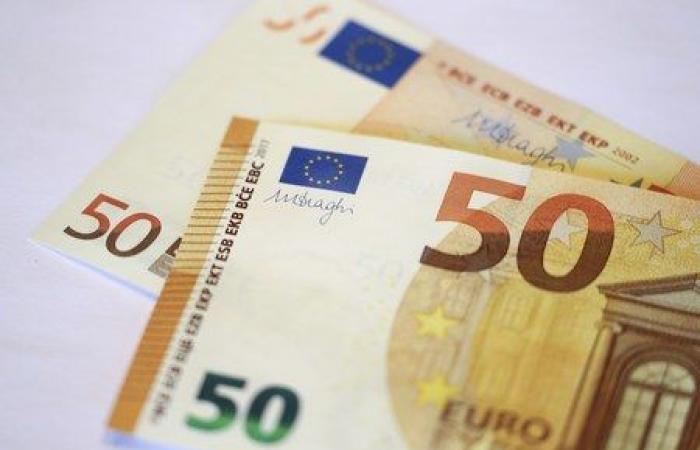The dollar held steady on Monday, while the euro traded at more than one-month lows, as political turmoil in Europe increased the level of uncertainty among traders, while investors awaited further data to gauge the strength of the US economy.
Investors weighed in on the risk of a budget crisis in the heart of the euro zone as far-right and left-wing parties gain momentum ahead of France’s snap parliamentary elections, putting pressure on President Emmanuel’s centrist administration Macron.
Even after French financial markets suffered a brutal sell-off late last week, European Central Bank policymakers have no plans to discuss emergency purchases of French bonds, five sources told Reuters.
The euro was flat at $1.0713, after falling to its lowest since May 1 at $1.06678 on Friday. Additionally, last week saw its largest weekly decline since April of 0.88%.
“Traders want certainty, which may only come after the second round vote (July 7), so the prospect of further decline in French and EU markets is real,” said Chris Weston, head of research at Pepperstone.
The dollar index, which tracks the U.S. currency against a basket of six others, was unchanged at 105.54, about its highest since May 2, driven largely by weakness in the euro.
The single European currency “accounts for about 57% of the weighting of the U.S. dollar index, the euro’s decline has indirectly benefited the dollar,” said Matt Simpson, senior market analyst at City Index.
Minneapolis Federal Reserve President Neel Kashkari said Sunday it was a “reasonable prediction” that the U.S. central bank would cut interest rates once this year and would wait until December to do so.
Last week, the Fed released updated projections that showed the median forecast of all 19 U.S. central bankers was for a single interest rate cut this year.
LIGHT WEEK FOR DATA
There is no major US economic data this week that could help clarify the Fed’s outlook, although Tuesday’s US retail sales and Friday’s flash PMIs could give clues to consumption and economic strength.
“The data would likely miss estimates by a wide margin to reignite bets on further Fed cuts, with the FOMC meeting still fresh in investors’ minds,” City Index’s Simpson said.
The pound fell 0.1% to $1.2671. Britain’s inflationary pressures still appear too hot for the Bank of England to cut rates at its June 20 meeting, with a majority of economists polled by Reuters predicting the first cut will not come before August 1.
Meanwhile, the yen remained stuck near 34-year lows against the dollar after the Bank of Japan on Friday postponed cuts in bond purchases and details of its tapering plan to its July policy meeting.
Governor Kazuo Ueda said he would not rule out an interest rate hike in July as the yen’s weakness drives up import costs, although that may not be the hawkish statement some have thought, Hiroyuki Machida said , sales director of Japan FX and commodities at Australia & New Zealand Banking Group.
“The feeling is that raising rates and tapering are two separate things” that the BOJ will decide whether or not to do based on different criteria, he said.
The yen weakened a bit to trade at 157.765, having slipped to 158.26 following Friday’s decision, its lowest since April 29.
The yen’s decline to 160.245 per dollar in late April triggered several rounds of Japanese official interventions totaling 9.79 trillion yen. In cryptocurrencies, bitcoin fell 1% to $65,794, while ether fell 2% to $3,524, according to LSEG data.





